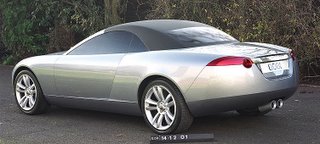Can You Picture a Four-Seat XK?
Clay models might seem like old-school car design, but most carmakers, including Jaguar, still use them to flesh out the details of their vehicles. Jaguar chief designer Ian Callum says you have to: it’s only in this form that you see how a car looks before locking into production pieces. “It’s always a surprise when you cut a car,” he says. In the case of the new XK, Jaguar’s multiple clay models dictated some of the car’s fundamental features, too. An early pass at a longer XK went belly-up in consumer clinics. “Buyers said, ‘Don’t make the car bigger,’” Callum recalls. Out came 4 to 5 inches from the wheelbase. Too, stylists and engineers had toyed with the idea of making the XK a hardtop convertible—but abandoned the notion when they realized that packaging a folding hardtop would mean squaring off and enlarging the XK’s tail.
In the case of the new XK, Jaguar’s multiple clay models dictated some of the car’s fundamental features, too. An early pass at a longer XK went belly-up in consumer clinics. “Buyers said, ‘Don’t make the car bigger,’” Callum recalls. Out came 4 to 5 inches from the wheelbase. Too, stylists and engineers had toyed with the idea of making the XK a hardtop convertible—but abandoned the notion when they realized that packaging a folding hardtop would mean squaring off and enlarging the XK’s tail.
Even after being vetted out with the clay model, finishing touches will always draw fire. The oval air intake on the XK’s nose has been a source of early criticism, drawing some unfavorable comparisons to the front end on the 2000 Ford Taurus. Callum says there’s a logical explanation for it: brother Moray, Mazda stylist and owner of an E-Type coupe, reinterpreted the latter car’s front end for the more pedestrian Taurus. And now it’s come home to roost on the XK, where Ian Callum points out that the oval shape and size are nearly identical not to the Taurus, but to Jaguar’s iconic XJ13 racer.
Source: © thecarconnection.com/blog/
by Marty Padgett